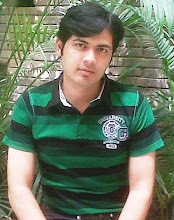Case 2
M was a disruptive student activist in the sixties, when it was the fad to be a disruptive student activist, but never to the point of "trashing" the administration building or placing stink bombs in the air-conditioning system. I am asked now to evaluate M for a senior government position. How much ought I to divulge?
Opinion
I should meet M personally to ascertain whether he’s fit for the job & whether he is still aggressive by nature. I should divulge M’s past but give him a high ranking if he deserves it and also make a plea to overlook M’s past, explaining the reasons to do so.
Root cause
(of my thinking of not divulging M’s past)
The feeling that it will harm M’s chances
(of the feeling that it will harm M’s chances)
The feeling that M is still a disruptive person by nature
Assumptions
1. That M was disruptive by nature. In all probability, M was a disruptive student activist due to his enthusiasm and eagerness to do things, as some of us eagerly participate in co-curricular activities, rather than to cause damage.
2. That M will again behave like a disruptive student activist in his official capacity. As mentioned earlier, he may not have been disruptive by nature and secondly, the years gone by may’ve made him a wiser and calmer person.
3. A major implicit hypothesis is that if I reveal M’s past, it will cause him to lose the race for the post. It may not be so if I give him a high ranking if he deserves it, and make a plea to overlook his past, and explain that it was a fad to do so then.
4. That if M loses the post due to me revealing the facts, it’s my fault. Rather, it’s because of M’s past. I am doing my duty with integrity by revealing the facts.
Supporting Arguuments
1. First and foremost, I have been assigned a duty to evaluate M. Hence I should perform it with complete integrity. Revealing M’s past may go against him, but the committee have a right to know all the facts about a candidate.
2. Concealing facts may also be a dangerous preposition as his disruptive nature may also raise his hood again. It may be unlikely, but the possibility cannot be ruled out. He may be carrying that aggressiveness with him for all these years. Senior govt. positions require people with a calm state of mind.
3. Concealing facts may land me in trouble. The committee may know the facts from other sources or M may perform an act unworthy of his govt. position. Then my concealing the facts will be under the scanner.
I should meet M personally to ascertain whether he is still disruptive and aggressive by nature, and also to know about his personality, whether he is fit for the position etc. If he is so, then I should give him a high ranking. The question of divulging his past is a tricky one, as it may go against him and the post may be awarded to a less deserving person. But concealing facts may also be a dangerous preposition as his disruptive nature may also raise his hood again, or I may be wrong in judging him as a person. It may also harm my reputation if it is known that I deliberately concealed facts. I’d rather reveal his past but give him a high ranking and make a plea that his past should be overlooked. I think I’ll go for the latter option. Even if it goes against him, it’s his fault more than mine. After all, it’s my duty to do my job with integrity.

0 comments on "CASE STUDIES (IIM SAMPLE) 2"
Subscribe in a Reader
Post a Comment